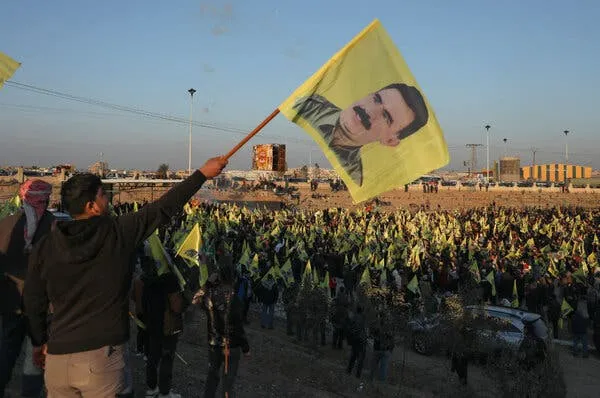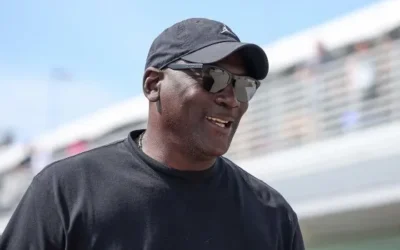In a landmark decision, the Kurdistan Workers’ Party (PKK) has announced its intention to disband and disarm, offering a potential turning point in the decades-long conflict with the Turkish state.
The announcement was made by the group’s leadership in the Qandil Mountains, located in northern Iraq, where many PKK members have been based since the conflict began in the late 1970s. This decision follows years of sporadic peace talks and ongoing violence, marking a significant moment in the path towards resolution.
The Background of a Prolonged Conflict
The PKK was established in 1978, initially seeking to create an independent Kurdish state in the southeastern region of Turkey. Over the years, the goals evolved into demands for greater autonomy and rights for the Kurdish population, which constitutes around 20% of Turkey’s population. The conflict that ensued has left tens of thousands dead and displaced millions, becoming one of the longest and most violent insurgencies in modern history.
Path Towards Peace
The disbanding of the PKK is seen as a direct result of years of dialogue and negotiation efforts that have taken place intermittently since the 1990s. Most notably, in 2013, Turkey and the PKK began peace talks that showed promise, only to collapse in 2015 amidst rising tensions and an increase in violence.
Recent international pressure and a shifting geopolitical landscape may have also played a role in this latest development. Turkey’s relationships with its neighbors and European allies have been strained, and the desire to stabilize the region may have prompted both sides to reconsider their positions for the benefit of lasting peace.
The Reaction from the Kurdish Community
The response from the Kurdish community and beyond has been mixed. Many view the PKK’s decision as a courageous step towards peace and reconciliation, while others fear that disbanding the PKK will lead to a loss of the hard-fought rights and recognition that the Kurdish people have garnered over the years.
“This is a moment we have awaited for decades,” said Aysel Tuğluk, a prominent Kurdish politician and former MP. “Yet, there is still much work to do to ensure that the rights of our people are not compromised in the process.”
Political Implications in Turkey
In Turkey, the ruling government has met the news with cautious optimism. President Recep Tayyip Erdoğan has long emphasized a zero-tolerance approach to terrorism, frequently classifying the PKK as a terrorist organization. However, he also acknowledged the need to address the grievances that have fueled the conflict.
“We welcome this decision as a step towards peace,” Erdoğan stated in an address to the nation. “But we must ensure that all actors are committed to this process and that we can work together to lay down a foundation for a more united future.”
Challenges Ahead
While the disbanding of the PKK is a monumental step forward, numerous challenges remain. Ensuring that former militants reintegrate into society and addressing the socio-economic disparities faced by the Kurdish population will be critical in the coming months and years. International observers have warned that without genuine reforms and commitment to addressing Kurdish rights, the peace will remain fragile.
Moreover, spontaneous violence or extremist reactions could derail the peace process if not managed wisely. Authorities in Turkey and the Kurdish leadership must work collaboratively to ensure the cessation of hostilities is respected on both sides.
The Pivotal Role of International Support
International organizations and countries with vested interests in the region will play a vital role in supporting this peace initiative. The European Union, the United States, and other entities should consider offering mediation, economic incentives, and frameworks for cooperation.
“The world has a stake in this peace,” said John Smith, a Middle Eastern analyst. “International actors must not only facilitate dialogue but also encourage the Turkish government to embrace reform policies that will address the historical grievances of the Kurdish people.”
Next Steps in the Process
Following the announcement, what comes next is crucial. Both parties will need to engage in transparent negotiations that involve all Kurdish political groups and civil society, ensuring that the voices of ordinary Kurds are heard. The disbandment should pave the way for broader discussions on autonomy, cultural rights, and political representation.
Furthermore, trust-building measures must follow, including the release of political prisoners and the end of discriminatory policies against Kurds. The transition to peace is complex and will require strong commitment from both sides, as well as the support of the international community.
A Hope for a New Era
As the PKK embarks on this transformative journey, many eyes will be watching closely. For both the Kurdish people and the Turkish state, this offers a chance to pave the way for a new era characterized by peace, understanding, and cooperation. After years of suffering and bloodshed, the decision to disband represents more than just the end of a conflict; it symbolizes a new hope for those who have long yearned for coexistence.
The path ahead will not be easy, but the momentous decision made by the PKK has opened doors that many thought were long closed. Revising the narratives surrounding the Kurdish conflict and creating pathways to reconciliation will be paramount for a peaceful future in the region.
Conclusion
In closing, the disbanding of the PKK marks a pivotal point in not only Kurdish-Turkish relations but also in the broader context of regional security. Ensuring this peace holds requires unwavering commitment from both sides, intricate understanding of the historical narratives, and steadfast support from the international community.
The hope remains that through constructive dialogue and cooperation, both Turks and Kurds can find a harmonious way forward, ultimately benefiting not only their own communities but also the stability of the entire region.







